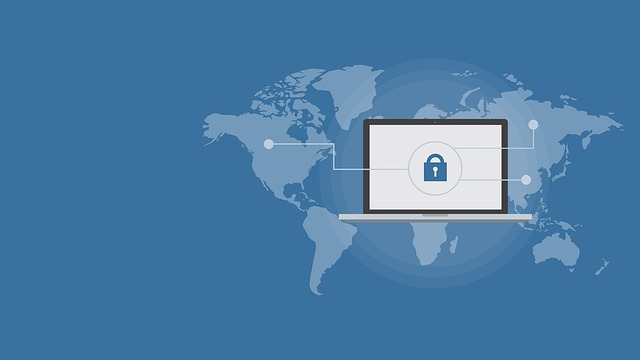Do you know what a cyber security analyst is?
As more and more businesses move their operations online, the importance of cyber security becomes increasingly apparent. Cybercrime is on the rise, and companies are looking for ways to protect themselves and their customers from data breaches, hacks, and other threats. Cyber security analysts are an integral part of the solution, working behind the scenes to keep networks secure. If you’re interested in pursuing a career in cyber security, keep reading to learn more about what it takes to become a cyber security analyst.
Education and Training
Like many professional careers, cyber security analysts typically require a minimum of a bachelor’s degree in a related field. Common majors include computer science, information technology, and cyber security. In addition to formal education, cyber security analysts also need to keep up with the latest industry developments and constantly learn about new threats and technologies.
Certifications
Many cyber security professionals earn certifications to demonstrate their knowledge and expertise. Some of the most common certifications for cyber security analysts include Certified Ethical Hacker (CEH), Certified Information Systems Security Professional (CISSP), and CompTIA Security+. These certifications can increase your employability and help you stand out in a crowded field.
Technical Skills
Cyber security analysts need a strong technical foundation to succeed in their roles. They must be proficient in programming languages such as Python and Perl and possess a deep understanding of computer systems and networks. Additionally, they must stay up to date on new technologies and defense strategies to stay ahead of attackers.
Soft Skills
While technical skills are essential, soft skills are also incredibly important in the field of cyber security. Cyber security analysts must be strong communicators, able to translate technical jargon into language that non-technical stakeholders can understand. They must also be able to work well under pressure, as the stakes are high in the event of a cyber attack.
Career Options
There are many different career paths within the field of cyber security. Some cyber security analysts work on the defensive side, analyzing network traffic, configuring firewalls, and monitoring networks for potential threats. Others work on the offensive side, conducting penetration testing and ethical hacking to identify vulnerabilities in a network. Additionally, there are opportunities for cyber security analysts to work in consulting, teaching, or even running their own businesses.

Cybersecurity Analyst Salary
If you’re considering a career in cybersecurity, one of the biggest questions on your mind is likely to be: “how much money can I make?” It’s a valid concern! After all, you want to know that your efforts will be rewarded with a substantial salary. Cybersecurity analysts are in high demand, but the average salary can vary widely depending on a range of factors. In this blog post, we’ll take a closer look at cybersecurity analyst salaries so you can get a clearer picture of what to expect.
What Does a Cybersecurity Analyst Do?
Before diving into salaries, it’s important to understand what a cybersecurity analyst does. In short, this role involves protecting an organization’s computer systems and networks from cyber attacks. Duties may include monitoring for suspicious activity, implementing security measures, performing vulnerability scans, and responding to incidents as they occur.
Factors Affecting Cybersecurity Analyst Salaries
Now let’s get to the crux of the matter: how much can you expect to make as a cybersecurity analyst? As we mentioned earlier, the answer can vary. Some factors that may impact your salary include:
Geographic location:
Cybersecurity analyst salaries tend to be higher in larger cities and areas with higher costs of living.
Experience level:
As with most jobs, more experience typically translates to a higher salary.
Education and certifications:
A higher level of education and/or relevant certifications can boost your earning potential.
Industry:
Cybersecurity analysts work in a range of industries, and some may pay more than others.

What is the Average Cybersecurity Analyst Salary?
So, what does the data say about cybersecurity analyst salaries? According to the Bureau of Labor Statistics, the May 2020 median annual wage for information security analysts in the United States was $103,590. However, the lowest 10 percent earned less than $58,990, while the highest 10 percent earned more than $158,860. This range is quite wide, but speaks to the varied factors that can impact salaries.
Other Benefits of Working in Cybersecurity
While salary is an important consideration, it’s not the only factor to keep in mind when weighing a career in cybersecurity. Other benefits include:
Job security:
Given the ongoing threat of cyber attacks, the demand for skilled cybersecurity analysts is likely to remain high.
Opportunities for growth:
With experience and additional certifications, you may be able to move into higher-paying roles like information security manager or chief information security officer.
Meaningful work:
Knowing that you’re helping to protect important data and systems can be a rewarding feeling.
Cybersecurity analysts can make a comfortable salary with opportunities for long-term growth and meaningful work. The median salary of $103,590 is certainly nothing to sneeze at, and there are additional factors like geographic location and experience level that can boost earnings even higher. Of course, salary isn’t the only reason to consider a career in cybersecurity – the job security and potential for growth are also major draws. If you’re passionate about technology and enjoy problem-solving, a career in cybersecurity could be a smart move.
If you’re interested in a dynamic and rewarding career in the tech industry, becoming a cyber security analyst could be a great fit. You’ll need a strong technical foundation, soft skills like communication and teamwork, and an ongoing commitment to keep up with the latest trends and threats in the industry. With the right education, certifications, and experience, you can help companies protect themselves and their customers from the growing threat of cybercrime.
The Benefits of Using a Cybersecurity Analyst for Industrial Security & HR Management
In this digital age, one of the biggest challenges that industries face is security breaches. With the increasing number of cyber threats targeting businesses, it’s essential to take proactive measures to protect your organization. One of the best ways to ensure the security of your company’s digital assets is by hiring a cybersecurity analyst. In this blog post, we’ll discuss the benefits of using a cybersecurity analyst for your industrial security and HR management needs.
Protect Your Business from Cyber Attacks
A cybersecurity analyst can help protect your business from cyber attacks. Cybercriminals are always looking for ways to penetrate business networks and steal sensitive information. Cybersecurity analysts can identify vulnerabilities in your systems and create strategies to mitigate the risks. They’ll also monitor your systems and networks to detect any suspicious activities and take quick action to prevent cyber attacks.
Minimize Risks and Maintain Compliance
In addition to protecting your business from cyber threats, a cybersecurity analyst can also help you minimize risks and maintain compliance with industry regulations. Cybersecurity analysts are well-versed in industry standards and regulations, and they can help you ensure that your business is complying with all the necessary requirements. By doing so, you can avoid potential fines and legal troubles.
Manage Employee Data and Access
Cybersecurity analysts can help manage employee data and access. They can create policies and procedures that dictate who has access to what data and make sure that all employees are following the rules. They can also implement practices that ensure that employee data is collected, stored, and used appropriately. By doing so, you can secure your business data and maintain compliance with privacy laws, such as GDPR and CCPA.
Strengthen Your Overall Security Strategy
Hiring a cybersecurity analyst can strengthen your overall security strategy. Cybersecurity analysts have a deep understanding of the latest cyber threats and security trends and can help you build a robust security strategy that’s tailored to your business needs. They can analyze your security posture, identify weaknesses, and develop a plan to address them. By doing so, you can ensure that your business is always one step ahead of cyber threats.
Save Time and Money
Finally, hiring a cybersecurity analyst can save you time and money. An experienced cybersecurity analyst can identify risks quickly and efficiently, saving you time and reducing the likelihood of a costly security breach. They can also help you avoid unnecessary expenses, such as hardware and software that may not be necessary for your business.

Strike Strategies
Strike Strategies provides all the solutions you need for your Industrial Security and HR Management needs. We strive to provide our customers with all the tools and guidance needed to make sure their business runs securely and efficiently. With our services, you can rest assured knowing that your business is in good hands. Our team of specialists are here to help you apply industry best practices and create a secure environment for your employees and customers alike. Contact us today to find out more about how Strike Strategies can help keep your company safe and organized! Don’t miss out on this opportunity to protect your business from any unwanted security threats. Get started now, so your company can remain secure for years to come!
Conclusion:
In conclusion, hiring a cybersecurity analyst can provide many benefits for your industrial security and HR management needs. They can protect your business from cyber attacks, minimize risks and maintain compliance, manage employee data and access, strengthen your overall security strategy, and save you time and money. With the increasing number of cyber threats targeting businesses, it’s essential to take proactive measures to protect your organization. If you’re looking to protect your business, we suggest hiring a cybersecurity analyst.




